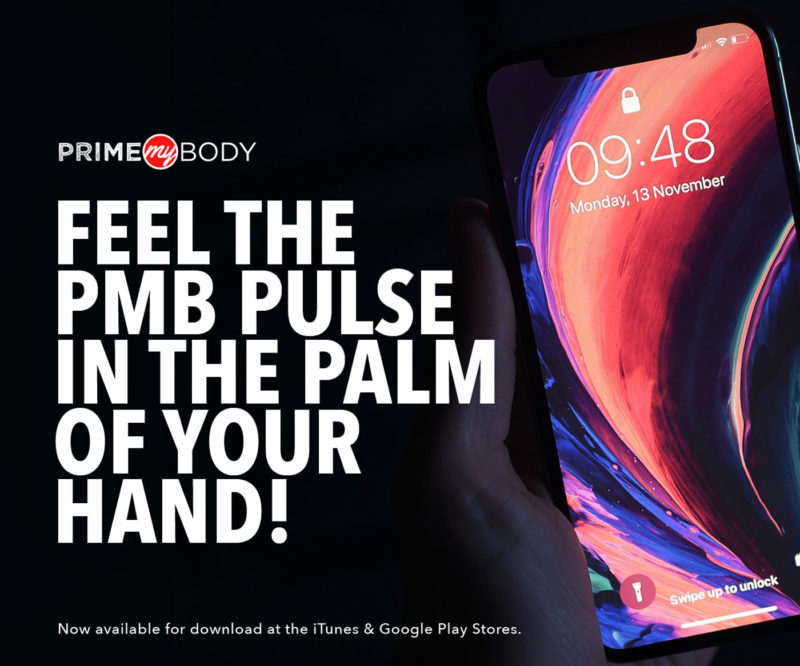Keys to The Kingdom: Cryptocurrency Wallet Security
With the $PMB Token Private Sale quickly approaching—starting date to be announced soon—we want to ensure you are completely prepared for both the private sale and also the storage of your $PMB Tokens after the sale.
Security of cryptocurrency is essential. Since most cryptocurrency storage, transfers, and transactions take place online you want to guard your coins and tokens against online breaches, hacks, and scams. Even after purchasing cryptocurrency—like Ether or Bitcoin—on a cryptocurrency exchange it’s wise to transfer those coins or tokens to a digital asset wallet. By keeping cryptocurrency on an exchange you relinquish control of your funds to a certain degree. Remember, to acquire $PMB Tokens during the $PMB Token Private Sale, Ether cannot be sent from an exchange (like Coinbase). It must be sent from a crypto wallet that supports ERC20 tokens.
If cryptocurrency and digital wallets are new to you that’s quite all right. It’s new to many of our Affiliates and most people around the country. Be patient when setting up your crypto wallet so you gain an understanding of how your wallet operates and the steps of transfer and storage of coins and tokens. Once you’ve created your wallet, we suggest performing a couple of deposit and transfer tests with small increments of the coins you’ve bought on an exchange. That’s the beauty of crypto. You can send increments of coins or tokens, such as .25 Ether.
Now let’s go over what a cryptocurrency wallet is, how they operate, and the variety and types of digital asset wallets available for storage of $PMB Tokens and other crypto.
What can a cryptocurrency wallet do?
Much like an online or mobile bank account, crypto wallets allow users to store, view, balance and manage their cryptocurrency. One wallet, with separate sub-wallets for various coins or tokens, provides a convenient asset storage platform with easy controllable access.
What is a public address and private key?
Public addresses and private keys are derived from complex encryption codes for security purposes. A public address—an alphanumeric code—allows users to send or receive tokens or coins. The public address is what you share to receive tokens or coins. Sharing your wallet’s public address will not provide access to your wallet, just the ability to send funds to that specific wallet. You’ll use your public address when transferring Ether to PrimeMyBody during the $PMB Token Private Sale.
Your private keys are like the keys to your mailbox or password to your bank account. Private keys are alphanumeric numbers and letters picked randomly as soon as you create a wallet. Private keys are not to be shared. It is recommended to back up and protect your private keys from accidental loss or theft.
To protect your digital assets from online breaches or hacks, it’s best to avoid storing your private keys online. Print or write them down and safely tuck copies in secure areas around the house or in a safe or safety deposit box. You may also want to consider purchasing a Crypto Key Stack that enables imprinting of private keys on water and fireproof stainless steel cards.
Types of Crypto Wallets
All cryptocurrency wallets are built for security, but some are more vulnerable than others. Here are a few types of wallets designed specifically for ERC20 tokens, like the $PMB Token.
Mobile Wallet
Mobile wallets are downloaded on your smartphone like any other app. They provide access to your tokens or coins directly via the app. Mobile wallets offer the advantage of convenience but can be a little more susceptible to hackers or cyber attacks than other wallets. A few suggested mobile wallets include Mycelium and BreadWallet.
Web Wallet
Similar to mobile wallets, web wallets are internet-based wallets that can be used anywhere Wi-Fi access is available. Web wallets do vary, but some are provided by crypto exchanges and third-party companies. Web Wallets are typically used for the storage and transfer of small amounts of coins and tokens.
Desktop Wallet
Desktop wallets are apps downloaded and installed directly onto your PC or laptop. Desktop wallets are viewed as more secure than web or mobile wallet. Coin or token data is typically not stored on desktop wallet servers. A few suggested desktop wallets include MyCrypto Desktop App, Exodus, Metamask, and Jaxx Chrome Extension.
Hardware Wallet
Hardware wallets or cold-storage wallets are portable hard drive disks similar to USB drives. Hardware wallets are viewed as the most secure option because they are only directly connected online for short periods of time when transferring coins or tokens or checking your balance. A few suggested hardware wallets include the Ledger Nano or Trezor. It is advised to purchase a hardware wallet directly from the company. Out of all the wallets available, hardware wallets are the only type that will cost you money out of pocket. Most hardware wallets cost between $70 and $200. If the peace of mind of security is important to you, than a hardware wallet is the way to go.
Paper Wallet
A paper wallet is a printed QR code of both a public and private key. A user can completely avoid storing digital wallet data online by using a paper wallet. Keep in mind, if you lose your paper wallet or if it’s accidentally destroyed that information is not recoverable.












1 comment
Looking forward to this launch! Going to be a big one!